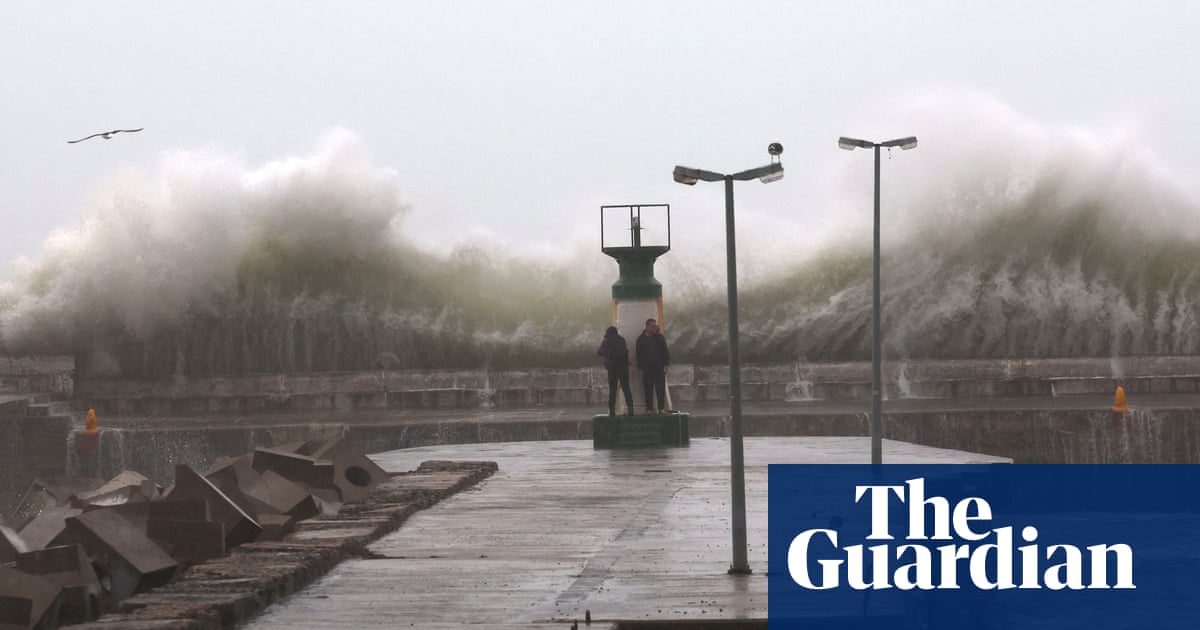
Parts of southern and western Europe have been experiencing unusually high temperatures. Areas of Spain and Portugal have recorded daily maximum temperatures in the high 30s celsius for more than a week, exceeding 40C in parts of southern Spain on Sunday. Italy, France, Germany and the Benelux region also reached the low- to mid-30s celsius in places at the weekend.
The heat is caused by a large area of high pressure that is stagnating over Europe and preventing the usual pattern of low pressure systems moving eastwards into Europe from the Atlantic. This is known as a blocking high and results in very dry and stable conditions, as the fronts associated with more dynamic weather patterns are forced away by the high pressure.
This phenomenon has triggered a heat dome, in which warm air is trapped under the blocking high. The pressure acts like a lid, forcing rising warm air to sink, compressing it slightly and raising its temperature as a result. The heating effect is also exacerbated by the dry conditions, as drier air is able to heat quicker than humid air.
The heat dome is likely to expand as it strengthens in the coming days, possibly spreading as far north-east as central Europe and bringing highs of more than 30C to parts of the continent each day. Spain will be particularly badly affected and is likely to hit the low- to mid-40s celsius daily, particularly across southern regions.
Canada has also been experiencing unusually high temperatures in recent days, with a new peak recorded by a weather station in Fort Good Hope in the Northwest Territories on Saturday. The station, just outside the Arctic Circle at about 66°N, recorded 36.7C (98.1F), a record for that far north in Canada. With similarly high temperatures forecast this week for parts of the Northwest Territories, further records could be broken.
On the other side of the world, a worrying trend in Antarctic sea ice continues. In February the region reached its lowest-ever recorded sea ice extent, beating the previous record low set last year. Satellite data suggests Antarctic sea ice covers about 12.4m km2, about 2m km2 less than this time last year. This is equivalent to an area a little larger than Mexico.












